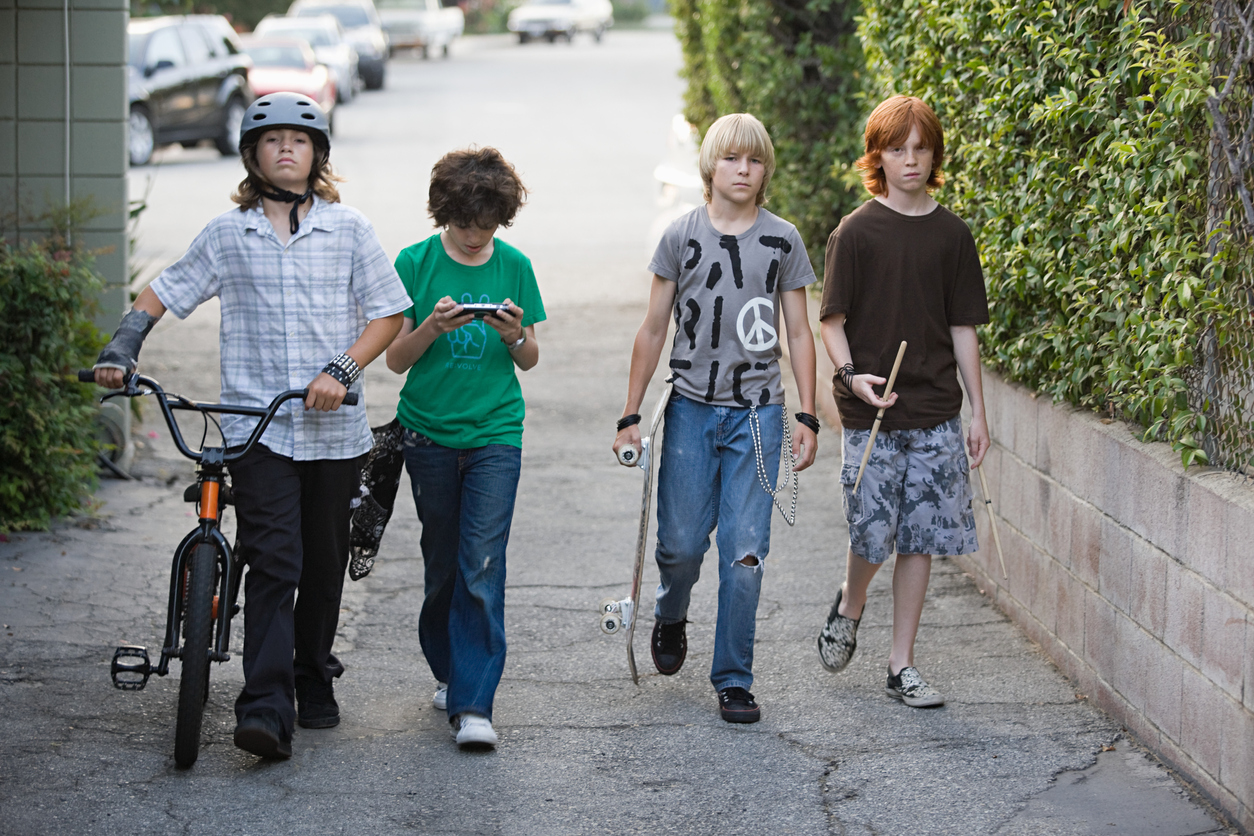My nephew Grant is a six-foot-three eighth grader with maturity that matches his stature. He recently attended his last middle school field trip—the final sendoff for his school’s eighth graders. The anticipation for this trip to Mackinac Island mounted with the four-hour drive. While the island is small, the fanfare is large—fudge on every corner, mansions, horses instead of cars, a fort from the Revolutionary War. As Grant’s class scattered about the island, he noticed one of his classmates didn’t have a group. She’s on the spectrum, and it wasn’t odd to see her alone. Grant felt uneasy about letting her spend the day alone, but he also felt disappointed by the thought of spending his iconic field trip with her instead of his buddies. Despite that, he chose to spend the day with her.
At the end of the day, he climbed into my sister-in-law’s car and started crying. He had chosen the “right” thing, but as the pit in his stomach and his tears indicated, it wasn’t without a cost. His buddies snickered all day long, saying things like, “Oooh, we better go the other way to give them some privacy.” Other classmates intentionally avoided them altogether. Grant made a choice that felt unpopular, but there are 3 times we might actually want to have unpopular kids.
1. When They’re Being Themselves
My son was obsessed with Minions for about three years longer than Minions were popular. He happily wore Minions shirts, socks, hoodies, and a watch that played the Minions theme song. He came home from school one afternoon feeling sad because his friends told him Minions were dumb. Rather than caving to peer pressure, he stayed true to himself by wearing his watch every day and adding a Minions lunch box and backpack to the mix.
As kids get older, the pressures to fit in continue to grow—fashion trends, internet usage, drugs and alcohol. Feeling unpopular hurts, but if our kids are unpopular because they are secure in themselves and their values, I’m good with that.
2. When They’re Setting an Example
My kids know the story of when their dad was a collegiate athlete, and the upperclassmen put the freshman through the gauntlet of cruel hazing. Rather than “chug, chug, chug” from the giant keg, he told the team captains he wasn’t going to participate. In order to still be part of the team, they made him chug a concoction of ketchup, pickle juice, and milk instead. He played along, but he also insisted on changing that tradition when he became a team captain.
Setting a positive example, be it on the field, in the classroom, or with siblings or extended family, might not win any popularity awards in the moment, but showing bravery, kindness, and integrity will leave a positive impact.
3. When They’re Doing the Right Thing
I taught middle school for several years, and popularity was the highest currency among teenage girls. When I busted a few girls passing a note with inappropriate language and drawings, it was amazing to see their responses. Two of the girls scoffed and made it seem like I was out of line, but the third girl quickly apologized and showed remorse. I remember how they teased her for writing an apology letter to me. I know doing the right thing wasn’t a popular choice for her that day.
Popularity is fleeting, but doing the right thing never goes out of style. If some kids look down on acts of kindness, individuality, and doing the right thing, then I’ll celebrate having unpopular kids.
When have you struggled to make the “unpopular” choice?










